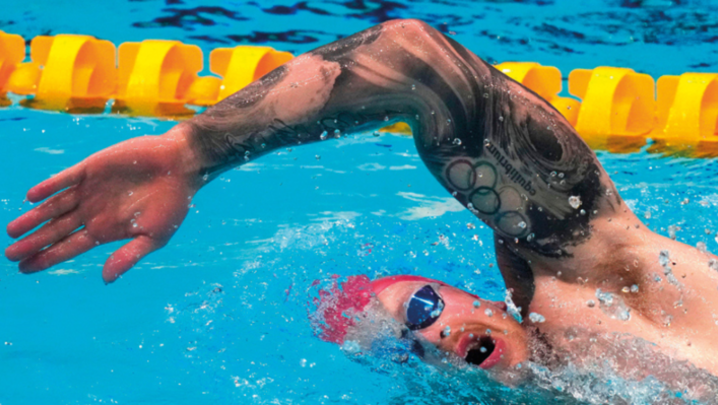BBC Director of Sport Barbara Slater leaves Salford for Rio, where she shares in Team GB’s euphoria
My week starts at BBC Sport HQ in Salford at what is a very exciting time – the Olympics are under way. I walk to our ground-floor operation, where the BBC Breakfast set has been relocated for 17 days so that we can bring viewers all of the action from the previous night.
Join a morning conference call with colleagues in London before starting a day of back-to-back meetings, both with colleagues in Salford and liaising with those in Brazil – the four-hour time difference can make for a very long day.
Prepping for tomorrow, when I’ll fly out to Rio to oversee our Olympics production and meet representatives of the International Olympic Committee, the sports community, rights-holders and the world’s broadcasters. Before any trip, there is always one of those “what have I forgotten to do?” moments. Today is no different.
Today, I fly out to Brazil (economy, for some who will be interested). When I land, I get my first taste of one of the challenges faced by the teams in Rio – traffic jams. It’s a long, hot bus journey to the BBC centre of operations.
Today, I fly out to Brazil (economy, for some who will be interested)
It’s been very tough: those teams out and about in Rio, and working at the many venues spread across the city, have faced lengthy and tiring delays. Everyone is working long hours. It’s intense work but you can feel the sense of pride and excitement to be working at an Olympic Games.
A day in the IBC, where all of the international broadcasters are based. Some broadcasters have more than 2,000 staff – and their own Starbucks. It’s the nerve centre of our output and is always a hive of activity.
Meet with the senior team as well as production teams in the early morning to get a feel of how everything is going. We keep across all the audience feedback and UK media to track how the Games are being received at home.
We look in detail at the previous day’s viewing figures and the performance of our digital services. There’s a chance to check our radio operation, which is working with an innovative split production for the first time – the control room is thousands of miles away in Salford, with the presenters in Rio.
Lots of meetings today. I’m attending the Olympic Broadcasting Services briefing – it’s the chance for the world’s broadcasters to give feedback on the host coverage. There’s also an opportunity to showcase our operations to members of the IOC.
There’s still lots of liaison back to the UK, both to Salford and to our London BBC One and BBC Four scheduling teams.
With the Olympics dominating the peak-time schedules, there are critical decisions to make about how the coverage works across the different channels and around programmes such as the Six and Ten O’clock News.
“Super Saturday” became synonymous with London 2012 due to the incredible success for Team GB on that night. Here we are again, four years later, with the same three athletes, Jessica Ennis-Hill, Mo Farah and Greg Rutherford, competing for medals and trying to match the many successes of British competitors elsewhere.
With the Olympics dominating peak-time schedules, there are critical decisions to make about how coverage works across different channels
Meanwhile, it seems we are breaking digital records every day. Saturday sets an all-time high, with an amazing 17 million unique users on the Sport website and 7 million accessing content before 11:00am UK time.
After a late finish, it’s an early start. We have another big day of potential Team GB medals. Little do we know that today will soon be dubbed “Super Sunday” in recognition of the medal haul that is to come.
Another six medals, and history’s been rewritten and records broken all over the place. On days like today, the editorial teams have to be flexible, agile and able to make good, last-minute decisions and predict where the story is moving to.
When is it right to move to another sport or change shot? These sound like small things but, if we get them wrong, the audience soon lets us know.
If we get them right, we have the potential to create those incredible moments that the whole country talks about. So, it’s another late night but the whole team is on a high after a simply incredible day.
The audience reaction is fantastic, as well – what better reward? TV has audience peaks of more than 10 million and, online, we score our own new record, of over 19 million.
Barbara Slater is Director of BBC Sport.





